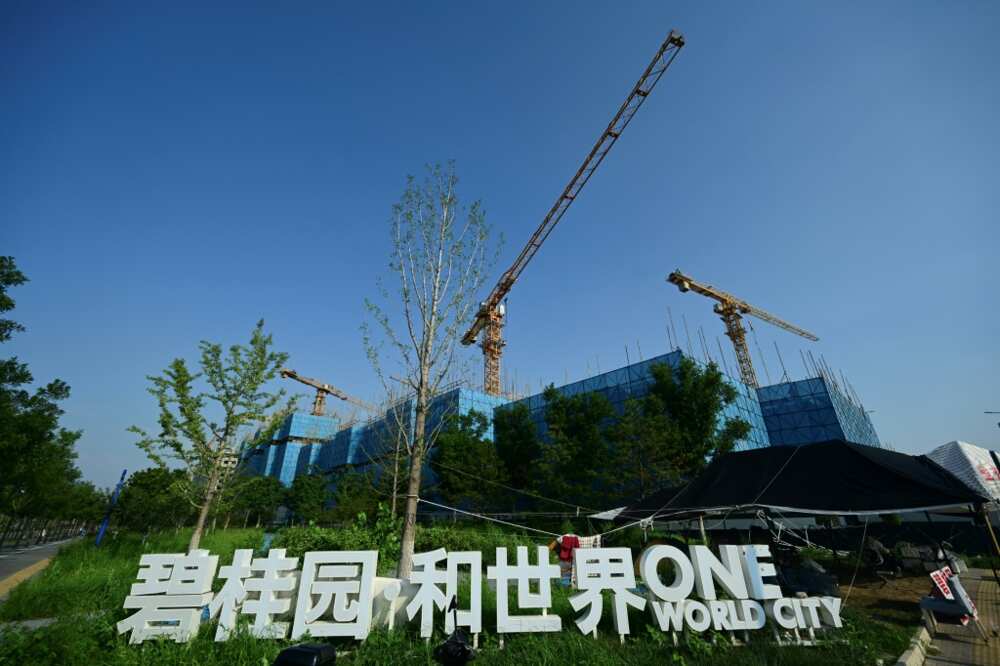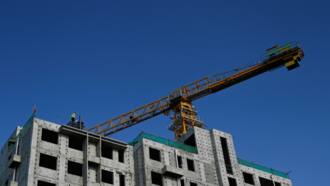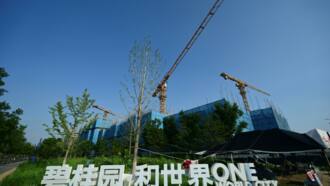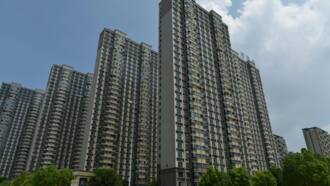Moody's downgrades China property giant ahead of crucial vote

Source: AFP
PAY ATTENTION: Сheck out news that is picked exactly for YOU ➡️ click on “Recommended for you” and enjoy!
Moody's further downgraded the credit ratings of Chinese property developer Country Garden on Thursday as the heavily indebted firm negotiates with creditors to avoid defaulting on a bond repayment.
The real estate giant, which has long been deemed financially stable, was unable at the beginning of August to make two interest payments, while China's property sector continues to undergo an unprecedented crisis.
Country Garden risks a default if it does not pay before a 30-day grace period expires in early September.
Adding to the burden, the firm must also make a repayment on a bond loan totalling 3.9 billion yuan ($537 million), which is due to mature in the coming days.
Bondholders had until 10:00 pm (1400 GMT) to decide on a proposal to postpone the payment, according to Bloomberg.
Country Garden did not comment immediately on the outcome of the vote, which was originally scheduled for last Friday but was postponed at the last minute.
PAY ATTENTION: Share your outstanding story with our editors! Please reach us through info@corp.legit.ng!
Bloomberg later reported that Thursday's voting deadline had been pushed back by another 24 hours, citing private creditor discussions.
In the red
Moody's said just hours before the Thursday vote deadline that it had cut Country Garden from Caa1 to Ca, indicating obligations that are "highly speculative and are likely in, or very near, default".
"The rating downgrades with negative outlook reflect Country Garden's tight liquidity and heightened default risk, as well as the likely weak recovery prospects for the company's bondholders," said Moody's senior vice president Kaven Tsang.
The company is estimated to "not have sufficient internal cash sources to address its upcoming offshore bond maturity", according to Moody's.
The ratings for Country Garden, China's largest private developer in terms of sales last year, were last cut by Moody's on August 10, dropping from B1 to Caa1.
The Moody's downgrade comes just one day after Country Garden published record half-year losses.
The firm reported a 48.9-billion-yuan loss for the first half of the year in a stock exchange filing Wednesday, adding to worries of a potentially catastrophic default.
And the property giant is grappling with significant debt, estimated at 1.43 trillion yuan ($196 billion) as of the end of 2022.
During the presentation of results Wednesday, the firm warned that it had "tried its best" to be able to repay its loans and was not ruling out a default on repayment.
Rate cut
Country Garden's cash-flow woes have fuelled fears that it could collapse, which many warn could have catastrophic repercussions for the Chinese financial system and economy.
The company, which was still the largest property developer in China last year, has four times as many projects as its competitor Evergrande, whose shutdown of construction sites last year led to protests and monthly payment strikes.
The major setbacks faced by Country Garden and Evergrande are further weakening a sector already damaged by the coronavirus pandemic and a broader economic slowdown in China.
And the situation fuels greater mistrust among potential buyers, aggravating the financial outlook for property developers -- even publicly listed giants considered to be on solid ground.
Country Garden's situation is all the more precarious because around 60 percent of its projects are located in smaller Chinese cities, where property prices have fallen the most and local customers have relatively low purchasing power.
In a bid to reinvigorate real estate -- a vital sector that has long contributed around a quarter of China's GDP -- authorities are taking action.
The country's central bank announced Thursday that it would lower mortgage rates for first-time buyers from September 25.
Several major cities, including Guangzhou and Shenzhen, have also relaxed mortgage rules in recent days to allow more households to benefit from them.
Xie Feng, the Chinese ambassador to the United States, pushed back Wednesday against claims his country's economy was facing severe threats, writing in a Washington Post op-ed that China "remains a most important engine of global growth".
He admitted the "road to post-Covid recovery will not be smooth", but cited recent actions by Beijing to sure up financial risks and to "ensure the steady and sound development of the real estate sector".
"With ample room in our policy tool kit, we are confident that we can forestall systemic risks," he said.
Source: AFP




